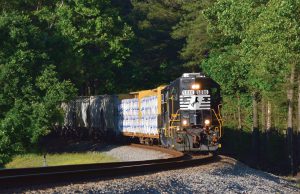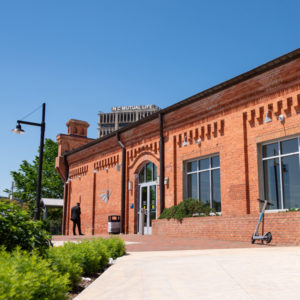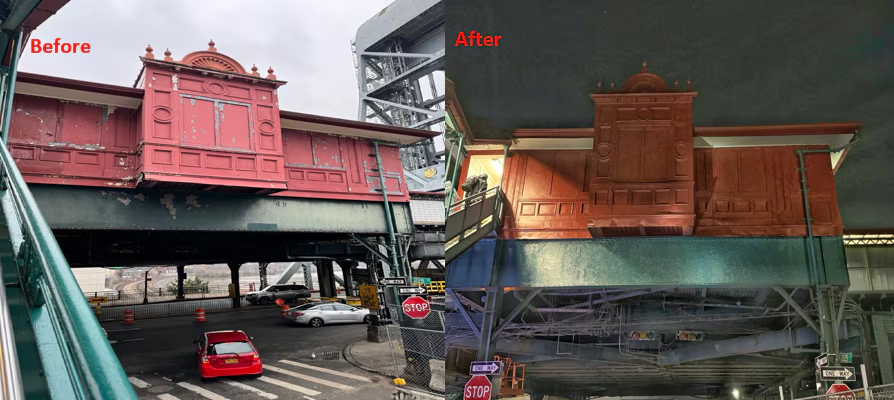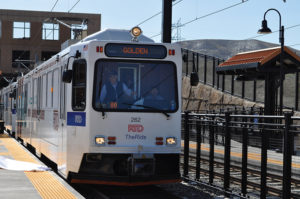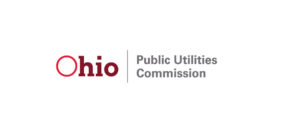NY/NJ transit tunnel in play
Written by jroodIn his first several months as New Jersey's governor, Chris Christie made it clear that he intended to cut the state's budget in ways that might surprise and upset some residents. But one big project - a train tunnel to Manhattan projected to cost $8.7 billion - appeared safe, according to The New York Times
The tunnel, planned for
about 20 years, had already received pledges of $3 billion each from the
federal government and the Port Authority of New York and New Jersey, and
ground had been broken to start the digging. But this week, elected officials
and mass transportation advocates have been buzzing with rumors that Christie is about to withdraw the state funds that had already been committed.
To do so would effectively
scuttle the biggest transit project under way in the country, forfeiting the
federal money and 6,000 construction jobs.
Christie has not yet
announced whether he will back out of the agreement to build the tunnel. On Oct.
6, he said he would decide "really soon," adding, "We don’t want to hold you in
suspense for much longer."
Other officials were
clearly concerned that a temporary halt to spending on the tunnel, which Christie
ordered in early September, citing concerns of large cost overruns, would soon
become permanent.
President Obama’s
transportation secretary, Ray LaHood, was trying y to arrange a talk with the
governor. Meanwhile, New Jersey’s senior senator, Frank R. Lautenberg, was
imploring Port Authority officials to accept responsibility for any cost overruns.
The frenzy has kept a
spotlight on Christie, whose trip this week to campaign for other Republicans
in the Midwest continued to fan speculation that he has his sights on the White
House. Christie has already drawn national attention for the combative stance
he has taken with teachers’ unions, cutting state education funding and
suggesting that teachers ease the impact by giving part of their pay to local
school districts.
Now, he is demonstrating
his willingness to reconsider the decisions of his predecessors, no matter the
cost. The review of the tunnel’s price tag that Christie ordered last month was
scheduled to be completed by this weekend, but some advocates for the project
have concluded that his mind was already made up. Some said they thought he
intended to pull back financing for the tunnel to solve a more pressing
problem: the lack of money available to fix up the state’s road and bridges.
The state’s Transportation
Trust Fund, which is financed by the state’s tax on gasoline, is running dry.
Transit advocates and environmental groups argue that the simple solution is to
raise the gas tax, the first increase since the late 1980s. They point out that
the state’s taxes on gas amount to just 14.5 cents a gallon – lower than in all
but three other states – and that every extra penny would translate to another
$50 million annually.
But Christie, who had
pledged not to raise any taxes, has steadfastly refused to consider that option,
leaving the state’s transportation commissioner, James Simpson, with few options
to replenish the transportation fund.
Christie said that he
expected to hear Simpson’s plan for the transportation fund in a couple of
weeks. By then, he should have decided whether to keep the state’s pledge to
spend about $1.25 billion in highway tolls on the commuter-train tunnel.
The tunnel, which was
scheduled to be completed in 2017, was designed to double the capacity for
passengers traveling between Manhattan and New Jersey. Its planners have said
that it would create 6,000 construction jobs, reduce congestion and pollution
and spur $660 million in annual economic activity in the metropolitan area.
Without it, they said, the region must rely on a century-old, two-track tunnel
from New Jersey to Pennsylvania Station in New York that is already nearing
capacity.
The project had been
supported by business leaders and elected officials in New York and New Jersey,
including some Republicans, like Representative Rodney Frelinghuysen, who lists
the tunnel as one of his "key mass transportation initiatives." Though the
project has been lauded as an exceptional example of bipartisan cooperation, no
Republicans have spoken out against the prospect of its suspension or demise.
Frelinghuysen said in a
statement that he supported Mr. Christie’s reconsideration. "We need to answer
some key questions such as, ‘Can we afford this project?’ and ‘Does it make
sense?’ " Frelinghuysen said.
That sort of talk
frightened mass transportation advocates, who said that if the tunnel project
was halted, it might not be revived for a decade or more. Robert D. Yaro, the
president of the Regional Plan Association, pointed to the Second Avenue subway
as an analogue. After that project was stopped in the 1970s, because the
Metropolitan Transportation Authority was in dire financial straits, it did not
begin again for more than a quarter-century, Mr. Yaro said.
"If he pulls the plug on
this thing, I think it could be gone for another generation," Yaro said,
referring to Christie.
Yaro said it was uncertain
whether Christie would be able to use elsewhere the $3 billion that has been
pledged by the Port Authority, which is jointly controlled by the governors of
the two states.
"He’ll have to cut a deal
with the next governor of New York to do that," he said, "and I suspect that
Andrew Cuomo or Carl Paladino would have some other ideas on how to spend that
money."

